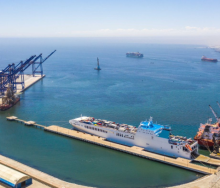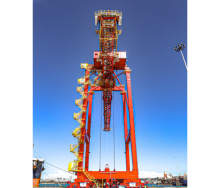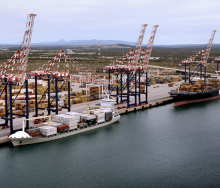Monday saw the official handover and commissioning of the AfCFTA secretariat building by the African Union.
The first secretary-general, South Africa’s Wamkele Keabetswe Mene, said the African Free Trade Area (AfCFTA) offered Africa an opportunity to confront the significant trade and economic development challenges head on.
Explaining the background to the development, tralac’s Trudi Harzenberg said Mena had in February been selected as the first secretary general (SG) of the AfCFTA and was sworn in in March for a four-year mandate. The secretariat is based in Accra, Ghana.
“The SG is expected to provide leadership and technical support to the AfCFTA secretariat and its overall day-to-day management, its implementation and strategic collaboration,” she said.
Mene said market fragmentation, over-reliance on the export of primary commodities, and high regulatory and tariff barriers were some of the main barriers to intra-Africa trade.
The result, he said, was a very low percentage of intra-Africa trade - some 18% - and an over-reliance on the export of primary commodities to traditional markets.
“The AfCFTA has the potential to be a catalyst for industrial development, placing Africa on a path to exporting value-added products and improving its competitiveness, both in its own markets and globally.”
Quoting Prof Landry Signé and Acha Leke, writing in 2019 in Foresight Africa, a Brookings Institute publication, he said African industries had the opportunity to double production to nearly $1 trillion within a decade, with three-quarters of that growth coming from manufacturing to substitute third country imports and meet increasing local demand.
He said the Covid-19 crisis was an opportunity to reconfigure supply chains, to reduce reliance on others, and to expedite the establishment of regional value chains that would boost intra-Africa trade and secure Africa’s productive capacity.
“In this connection, in the four months that I have been in office, I have already initiated and had very promising engagements with three of the world’s largest automobile manufacturers with a view to the establishment of automobile value chains across Africa,” he said. “I intend to extend this type of an engagement to include other labour-intensive sectors such as agro-processing.”













